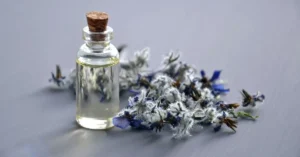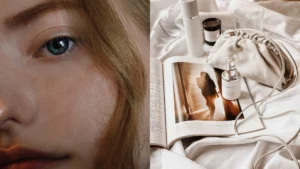Ever considered that your sneezing fits and eye irritation could be linked to those annoying pimples? It might seem far-fetched, but it’s possible that allergies are the stealthy offenders behind your skin issues.
As we dive into the surprising ways that your body’s reaction to allergens can mess with your skin, you’ll discover insights that could help you tackle those pesky spots once and for all.
Table of Contents
Can Allergies Cause Acne?
It’s a question that has been debated among dermatologists and allergists for years. While there is no clear-cut answer, there is evidence to suggest that allergies can play a role in the development of acne.
One theory is that allergies cause inflammation in the body, which can lead to swelling and skin irritation. This inflammation may then trigger an immune response, resulting in the release of hormones that can worsen acne.
Another way allergies may contribute to acne is through food sensitivities and allergies that result in leaky gut syndrome. This condition can cause toxins and other harmful substances to leak into the bloodstream, which can then lead to inflammation and skin problems like acne. While there is still much research to be done on the topic, it’s clear that allergies and acne are more closely related than we may have thought.
Understanding Acne and Allergies
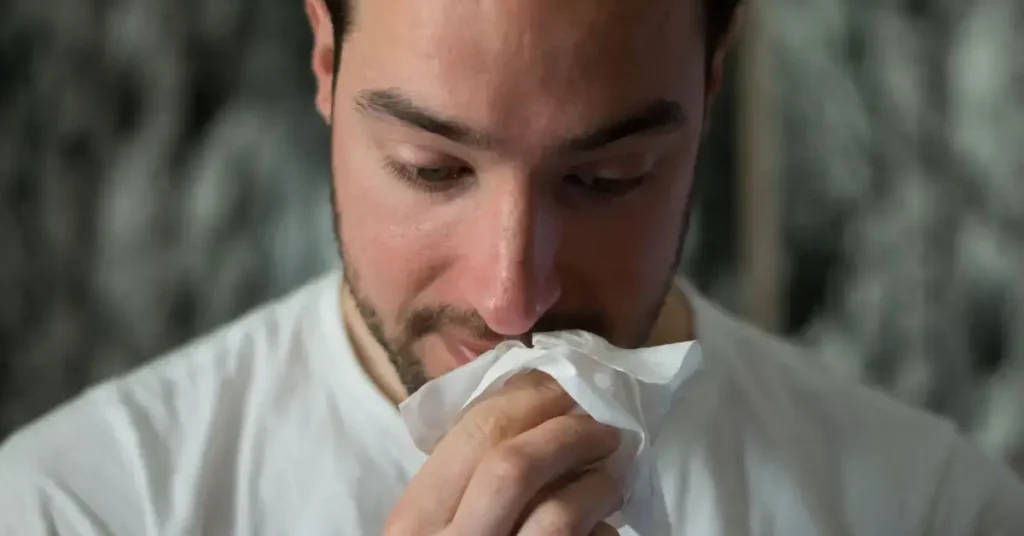
Acne is a common skin condition that affects people of all ages. It occurs when hair follicles become clogged with oil and dead skin cells. Acne can cause whiteheads, blackheads, and pimples. It is most commonly associated with teenagers, but it can also affect adults.
Allergies, on the other hand, occur when the immune system overreacts to a foreign substance. This can cause a wide range of symptoms, including sneezing, runny nose, and itchy eyes. But can I get acne from allergies? The answer is yes, in some cases.
Allergies can contribute to conditions that inflame and clog your pores, which can trigger acne. Inflammation caused by allergies can disrupt the health of your skin, leading to acne flare-ups. Some allergens, such as certain chemicals or cosmetics, can directly clog pores and cause acne.
Personally, I have struggled with both allergies and acne. I have found that managing both conditions is important to keep my skin healthy and clear. Here are a few pro tips that have helped me:
- Avoid touching your face: This can transfer dirt and bacteria from your hands to your face, which can cause acne.
- Keep your skin clean: Wash your face twice a day with a gentle cleanser to remove dirt and oil.
- Manage your allergies: Take steps to avoid allergens that trigger your symptoms, such as pollen, dust, or certain foods.
If you are struggling with acne and allergies, it is important to seek treatment from a dermatologist. They can help you develop a personalized treatment plan that addresses both conditions.
Types of Allergies That Can Cause Acne
As someone who has struggled with acne for years, I know firsthand how frustrating it can be to deal with breakouts. Over time, I’ve learned that there are many different factors that can contribute to acne, including allergies.
Yes, allergies can cause acne! In fact, certain types of allergies can trigger inflammation and increase sebum production, which can lead to breakouts. Here are some of the most common types of allergies that can cause acne:
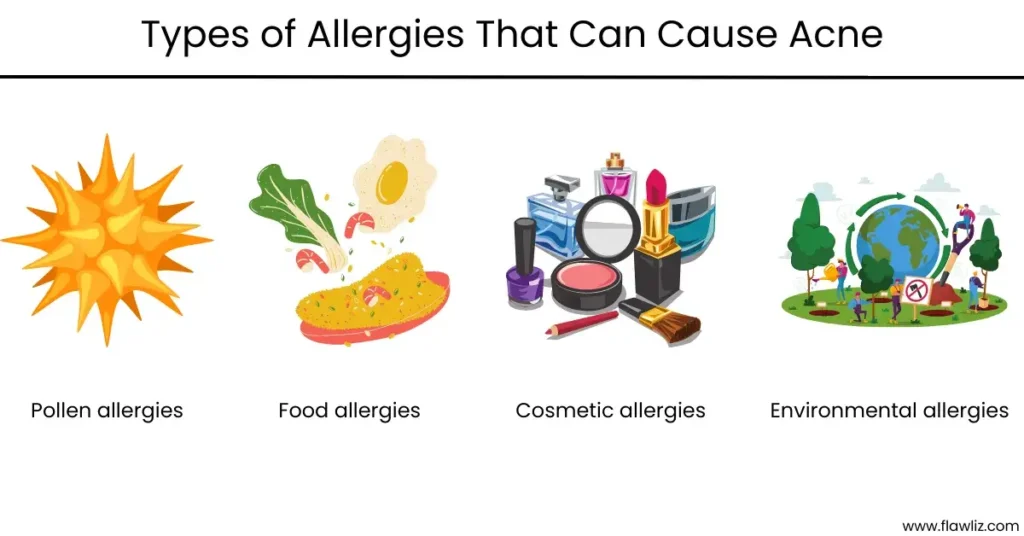
- Pollen allergies: If you have seasonal allergies, you may notice that your skin breaks out more during certain times of the year. This is because pollen can trigger an inflammatory response in the body, which can lead to acne.
- Food allergies: Certain foods can also cause acne in some people. Dairy products, for example, are a common culprit. If you suspect that a certain food is causing your acne, try eliminating it from your diet for a few weeks to see if your skin improves.
- Cosmetic allergies: Some people are allergic to certain ingredients in makeup, skincare products, and hair products. If you notice that your skin breaks out after using a new product, it may be worth checking the ingredients list to see if there’s anything that could be causing a reaction.
- Environmental allergies: Dust mites, pet dander, and other environmental allergens can also trigger acne in some people. If you have allergies to these types of things, it’s important to keep your living space clean and free of allergens as much as possible.
Pro Tip: If you suspect that allergies are causing your acne, try keeping a journal to track your symptoms. Write down what you eat, what products you use, and any other factors that could be contributing to your breakouts. This can help you identify patterns and pinpoint the specific allergens that are causing your acne.
How Allergies Affect Your Skin
As someone who has dealt with both allergies and acne, I know firsthand how frustrating it can be to deal with both at the same time. But can allergies actually cause acne? The answer is yes, and here’s how.
Inflammation and Acne
When your body is exposed to an allergen, it triggers an immune response that can lead to inflammation. This inflammation can affect your skin, causing redness, swelling, and even acne. In fact, studies have shown that people with allergies are more likely to have acne than those without.
Inflammation plays a major role in acne development. When your skin becomes inflamed, it can cause your pores to become clogged with excess oil, dead skin cells, and bacteria. This can lead to the formation of pimples, blackheads, and whiteheads.
Allergic Reactions and Skin Irritation
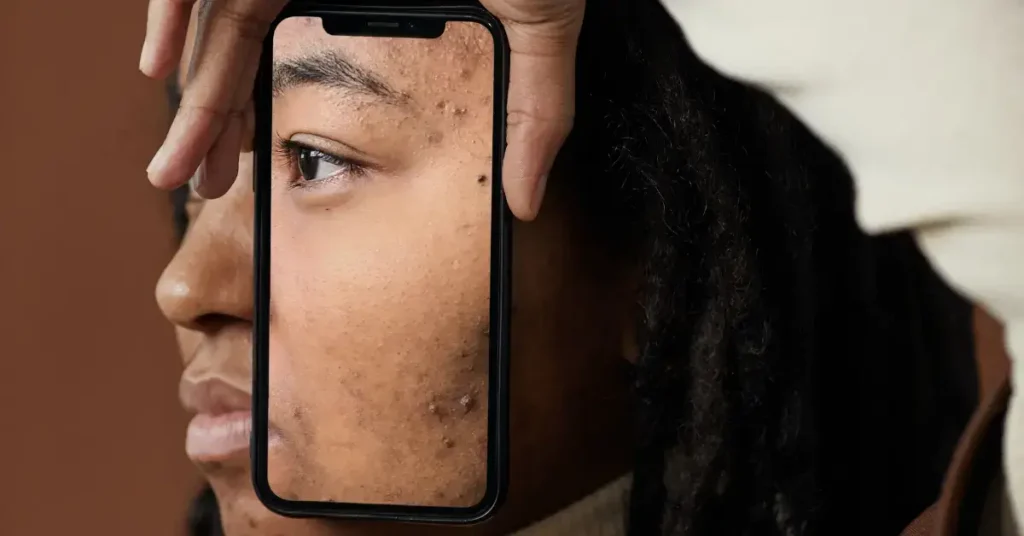
Allergic reactions can also cause skin irritation, which can exacerbate existing acne. For example, if you’re allergic to a certain ingredient in your skincare products, it can cause your skin to become red, itchy, and inflamed. This can make existing acne worse and even lead to the development of new breakouts.
If you suspect that your allergies are contributing to your acne, it’s important to speak with a dermatologist. They can help you identify any potential allergens and develop a treatment plan to help manage your symptoms.
Remember: If you suffer from seasonal allergies, try to avoid touching your face as much as possible. Pollen and other allergens can easily transfer from your hands to your skin, which can lead to irritation and breakouts.
Identifying Allergy-Induced Acne
As someone who has struggled with acne for years, I know how frustrating it can be to try every product under the sun without seeing any real improvement. What many people don’t realize is that allergies can actually cause or worsen acne. In this section, I’ll share some tips on how to identify allergy-induced acne and what you can do about it.
Signs of Allergy-Induced Acne
If you suspect that your acne is caused by allergies, there are a few signs to look out for. First, pay attention to when your breakouts occur. If they tend to appear after exposure to certain allergens, such as pollen or pet dander, this could be a clue. You may also notice that your acne is accompanied by other allergy symptoms, such as sneezing, itching, or hives.
Another way to identify allergy-induced acne is to look for patterns in the location of your breakouts. Allergens that come into contact with your skin can cause inflammation, which can then lead to acne. For example, if you notice that you tend to break out around your mouth after eating certain foods, this could be a sign of a food allergy.
What You Can Do
If you suspect that your acne is caused by allergies, there are a few things you can do to help manage it. First, try to avoid exposure to known allergens as much as possible. This may mean staying indoors during peak pollen season or avoiding certain foods.
You may also want to consider using products that are designed to help soothe inflamed skin. Look for ingredients like aloe vera, chamomile, and green tea, which can help reduce redness and irritation.
Preventing and Treating Allergy-Induced Acne
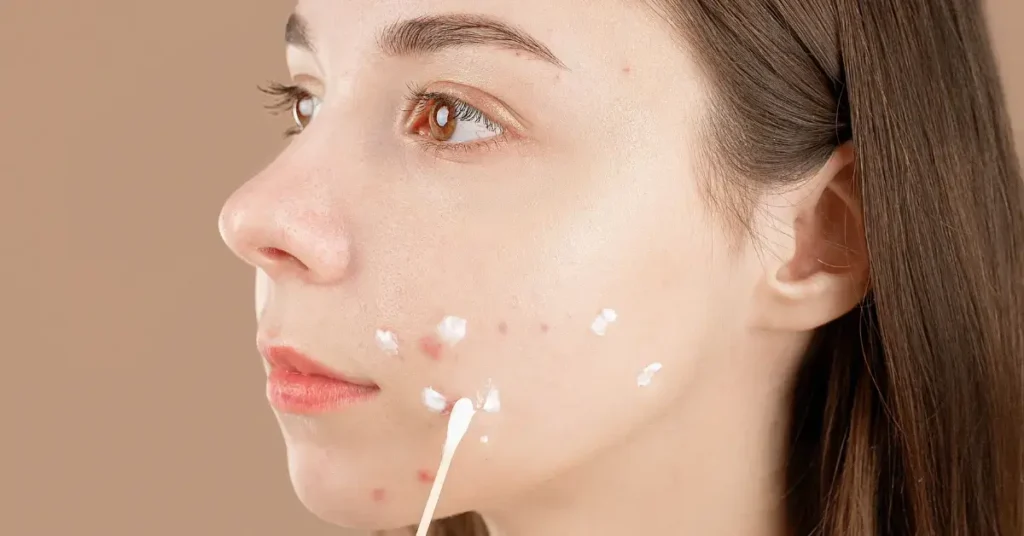
As someone who has dealt with both allergies and acne, I understand how frustrating it can be when the two conditions seem to be working against each other. While there is no definitive proof that allergies directly cause acne, they can certainly exacerbate the condition and make it more difficult to manage. Here are some tips I’ve learned over the years for preventing and treating allergy-induced acne.
Dietary Changes
One of the easiest ways to reduce the impact of allergies on your skin is to make some simple dietary changes. For example, if you suffer from seasonal allergies, try to avoid foods that are known to trigger histamine reactions, such as shellfish, peanuts, and soy products. You can also try incorporating more anti-inflammatory foods into your diet, such as leafy greens, berries, and fatty fish.
Topical Treatments
When it comes to treating allergy-induced acne, topical treatments can be very effective. Look for products that contain ingredients like salicylic acid, which can help unclog pores and reduce inflammation.
Tea tree oil is another natural ingredient that has been shown to have anti-inflammatory and antimicrobial properties. Just be careful not to overdo it with harsh products, as this can actually make acne worse.
Medical Treatments
If your allergy-induced acne is particularly severe, you may want to consider seeking medical treatment. Your doctor may prescribe topical or oral antibiotics to help reduce inflammation and kill bacteria. In some cases, they may also recommend corticosteroid injections to reduce inflammation and prevent scarring.
Pro Tip: One thing that has helped me manage my allergy-induced acne is to keep a journal of my symptoms and what seems to trigger them. This can help you identify patterns and make more targeted changes to your diet and skincare routine.
Can Allergies Cause Acne: The Essentials
As someone who has struggled with acne for years, I’ve often wondered if my allergies could be contributing to my breakouts. After doing some research and consulting with a dermatologist, I’ve learned that while allergies don’t directly cause acne, they can indirectly contribute to flare-ups.
Here are the most important facts to keep in mind:
- Allergies can cause inflammation in the body, which can lead to skin irritation and swelling. This inflammation can trigger an immune response, resulting in the release of hormones that can worsen acne.
- Food and environmental allergies can contribute to conditions that inflame and clog your pores, potentially triggering acne flare-ups.
- Some people may be allergic to certain acne products, which can cause a serious allergic reaction. It’s important to be aware of any potential allergens in the products you use on your skin.
Personally, I’ve noticed that my acne tends to flare up when my allergies are particularly bad. I’ve also had a bad reaction to an acne product in the past, which made my skin even more inflamed and irritated.
FAQ:

How do you get rid of acne from allergies?
Acne caused by allergies can be treated by avoiding the allergen and using non-irritating and non-comedogenic products. Acne may be reduced by identifying food allergies or intolerances. Furthermore, some people may find that certain foods cause their skin to dry out, resulting in acne.
Can allergies affect face skin?
Allergies can affect the skin on the face in a variety of ways, including raised welts, swollen lips, and watery eyes. Seasonal allergies can cause dry, itchy, and irritated skin, as well as contact dermatitis, dark circles and black eyes, and skin texture changes. Rashes and hives can also be caused by allergies.
Can seasonal allergies cause skin breakouts?
Seasonal allergies can, in fact, cause skin breakouts. Airborne allergens can cause rashes and other skin reactions. Allergies can aggravate acne and cause breakouts by causing rubbing and itching. Furthermore, people with seasonal allergies are more likely to have dry, itchy, irritated skin, which can cause additional redness and skin aggravation.
How can you tell if you have acne or allergies?
Look for signs of itchiness to determine whether you have acne or allergies. Allergic reactions are typically red, itchy, and scaly, whereas purging pimples do not cause itchiness. Food allergies do not cause acne, but they can cause cystic acne with large, red, inflamed, and itchy welts.
How long do allergy breakouts last?
Allergy breakouts can last anywhere from a few hours to a few days, with some lasting as long as 2-4 weeks. Hives, which are red, itchy bumps caused by food or drug allergies, usually disappear within a few days. The condition of chronic urticaria can last for more than six weeks.
If you liked this blog article about the question: Can Allergies Cause Acne, don’t forget to leave us a comment down below to tell us about your experience.



